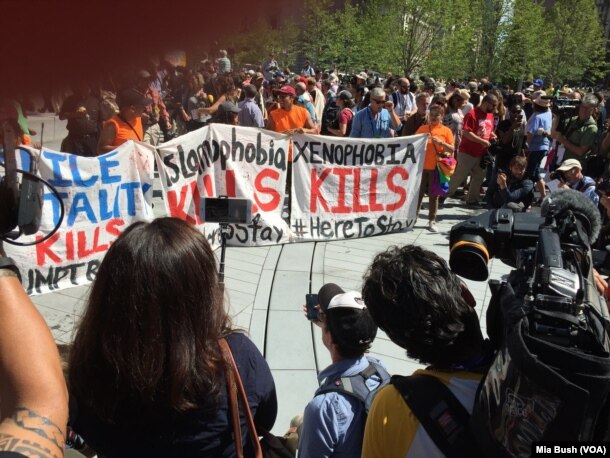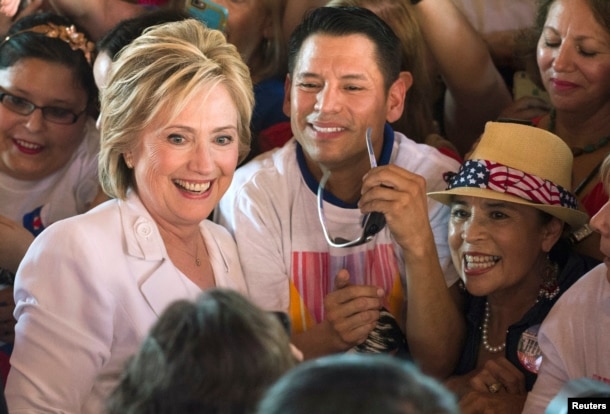
Trump Faces Pivotal Campaign Moment on Immigration Policies
Ken Bredemeier
VOA News
WASHINGTON — Republican Donald Trump is facing a pivotal moment in his U.S. presidential campaign against Democrat Hillary Clinton, as he is set to explain the immigration policies that have been at the center of his unorthodox run for the White House.
Trump is laying out his plan Wednesday in Arizona, a southwestern state along the U.S. southern border with Mexico and for years one of the focal points of U.S. efforts to curb the stream of illegal migrants into the country.
In recent days, Trump has offered mixed signals on whether he still supports his original call to create a «deportation force» to send the 11 million undocumented immigrants already living in the United States back to their home countries.
«From day one I said that I was going to build a great wall on the SOUTHERN BORDER, and much more. Stop illegal immigration,» Trump wrote on his Twitter account Tuesday, «Watch Wednesday!»
Trump’s staunch, nationalist anti-immigration stance won him wide support in the state-by-state Republican presidential primaries, helping him surge past seasoned politicians to the Republican nomination in his first contest for elected office.
But national surveys less than three months before the November 8 election against Clinton show many voters in the broader electorate are opposed to mass deportation of families, many of whom have been living in the country for years.
Immigration policy
In several recent interviews, Trump, a brash real estate mogul and one-time television reality show host, has said he wants to quickly deport any undocumented immigrants who have been convicted of crimes, much as the U.S. government already does. He says he is opposed to granting the remaining undocumented immigrants who have not committed crimes a path to U.S. citizenship and said they have to pay taxes they owe the government.

FILE – Pro-immigration demonstrators protest the immigration stance of Republican presidential nominee Donald Trump, in Public Square in Cleveland, July 20, 2016.
But he has left it unclear exactly how he wants to deal with this large group of immigrants, while still voicing support for construction of the border wall.
His vice presidential running mate, Indiana Governor Mike Pence, told an interviewer Sunday that Trump is like «a CEO at work,» a corporate chieftain consulting with people and considering his options.
«You see someone who is engaging the American people, listening to the American people,» Pence said. «He is hearing from all sides.»
Clinton’s position
Clinton favors border protection, but also comprehensive immigration reform, with a pathway to citizenship for undocumented immigrants already in the country. But such legislation has been stalled in Congress, with Republican opponents in the House of Representatives blocking a plan passed by the Senate and supported by President Barack Obama.

FILE – Democratic U.S. presidential candidate Hillary Clinton poses with supporters after a «Latinos for Hillary» rally in San Antonio, Texas, Oct. 15, 2015.
Clinton, a former U.S. secretary of state seeking to become the first female U.S. president , holds a five-percentage-point lead over Trump in the latest compilation of national polling by the realclearpolitics.com political web site.
Tuesday’s weekly NBC News/Survey Monkey tracking poll said she is ahead by a 48-to-42 percent margin, down from an eight-point edge a week ago.
Numerous U.S. political analysts are predicting she will become the country’s 45th president when Obama leaves office in January, but also say that unforeseen world events or blunders by either candidate in three scheduled Trump-Clinton debates in September and October could alter the track of the campaign.

